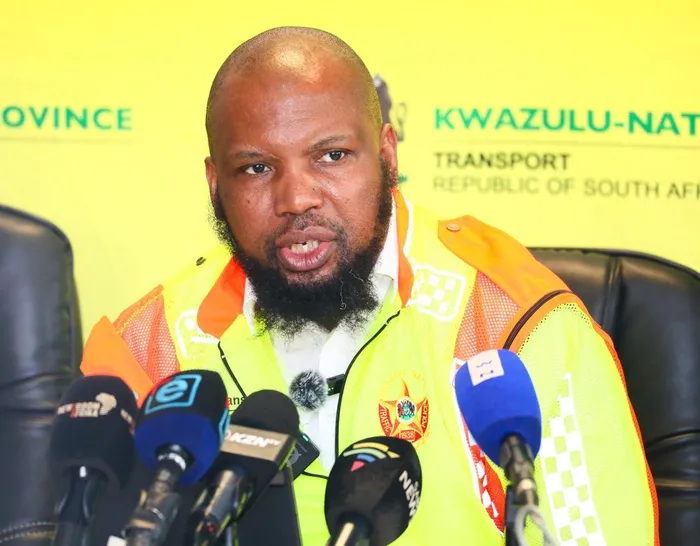Transforming KwaZulu-Natal: MEC Sibuniso Duma's achievements in housing and transport

MEC Siboniso Duma looks back on his 400 days in office, heading the Human settlements and Transport portfolio in KZN
Image: Supplied
Transport and Human Settlements MEC Siboniso Duma characterised his first 400 days in office as a significant leap forward, which aligned with the key implementation of the Freedom Charter's principles.
Speaking to the Daily News yesterday, Duma reflected on the collaborative efforts with traditional leadership, successful housing initiatives, and ongoing challenges within his departments.
One of the crowning achievements Duma noted was the strengthened relationships with traditional leaders across KwaZulu-Natal, which came about through frequent engagements that ensured local support for government projects aimed at disaster responses.
“The Amakhosi have agreed to make land available for our responses to disasters,” Duma stated, which pointed to an important collaboration for future endeavours.
Duma revealed that the Human Settlements department fully subsidised 7,976 homes, which positively impacted communities and ensured that over 900 building sites were established for public use.
“We built 5,030 houses for rural residents and provided homes for 464 vulnerable individuals, while also registering 1,638 title deeds for community members,” he added proudly.
Among the department's highlights, Duma lauded the acquisition of Montclair Lodge from Transnet for R33 million.
This facility, which was set to be repurposed into government-owned transitional emergency accommodation for flood victims, featuring 268 rooms and a capacity for 600 individuals.
The lodge was anticipated to house flood victims, from December 2025 or January 2026, which would provide a strategic response to seasonal flooding threats.
“This historic milestone will greatly reduce reliance on private facilities for emergency accommodations,” Duma explained, expressing optimism for the future.
On the transport front, Duma announced a landmark investment of over R13 billion for developing the province's infrastructure, enhancing public transportation, and enforcing road safety in the upcoming financial year. This investment was not about roads only; but was a crucial portion of the government’s broader plan to tackle poverty and inequality.
However, Duma mentioned that a harsh reality was the department's budget constraints. Despite a monthly requirement of R1.1 billion to pay service providers, the department recently received only R800 million and, in the previous month, R560 million.
“This means our vision for a 30-day payment turnaround will be compromised,” he lamented, promising to engage with Provincial Treasury for a resolution.
Seeking to stimulate local economies while addressing the needs of residents, Duma expressed his commitment to tackling delays in housing construction.
“We’ve reduced blocked housing projects from 68 to 15,” he said, while also addressing persistent local opposition to new development initiatives.
“There is a need for community understanding; the Not in My Backyard syndrome continues to hinder progress.”
Despite these challenges, Duma emphasised the importance of partnership with religious and traditional leaders to create inclusive conversations around government programmes.
Through prayer days and various forums, he aimed to empower communities to monitor the effectiveness of resources directed to them.
“We have noted the need to join hands; while we invest heavily in infrastructure and service delivery, engagement with the community is vital to ensure these resources reach those in need,” he concluded.
DAILY NEWS